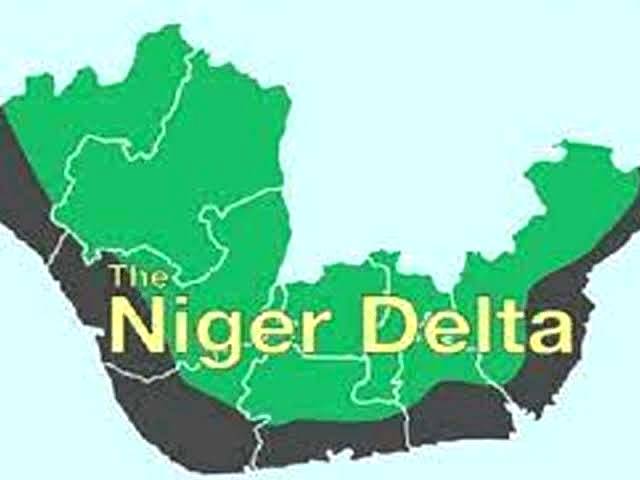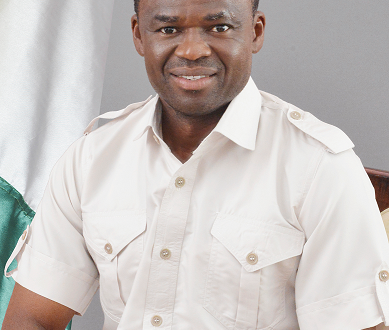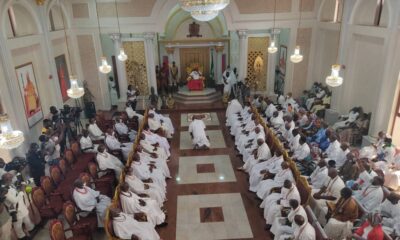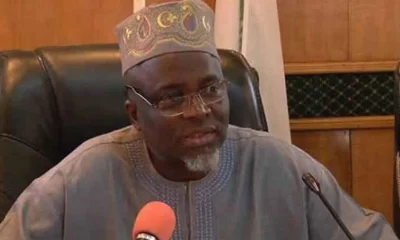News
We May shut Down Universities Indefinitely – Non-teaching Staff
Published
1 month agoon
By
Editor
Non-teaching staff in the nation’s public universities may soon shut down the institutions over the inability of the government to accede to their demands that led to the seven-day warning strike which they started last Monday.
The non-academic staff gave the warning during a virtual meeting organised with their leaders on Sunday evening by the Education Writers’ Association of Nigeria, EWAN.
The unions are the Senior Staff Association of Nigeria, SSANU, the National Association of Academic Technologists, NAAT and the Non-Academic Staff Union of Education and Allied Institutions, NASU.
The unions said services such as electricity, water supply, mobilisation of students for the National Youth Service Corps NYSC, Scheme, even provision of health services in university clinics among others would be disrupted.
READ ALSO: Troops Kill 5 Terrorists, Rescue 78 Victims
At the meeting were the National President of SSANU, Comrade Mohammed Ibrahim, the NAAT National President, Comrade Ibeji Nwokoma as well as some stakeholders in the sector.
The threat by the unions is a follow up to the warning strike which ended midnight Sunday.
Nwokoma, who expressed disgust with the manner the government has been handling the issue, added that some people were bent on fomenting crisis in the university system.
“Our members went on strike in March 2022 and it was over the refusal of the government to fulfill the 2009 Agreement we had with the government. The agreement was to be renegotiated every three years but that was not done. Over 15 years now, what we have been having is taking a step forward and taking two backwards. Government keeps tossing us from one committee to another.
“They are owing us five and a half months from that strike action, but they paid teaching staff four months withheld salaries and forgot others. The same attitude is what obtains when you have Earned Allowance to be paid. Some people would just arrogate to themselves the power to take whatever they like from the money and leave the crumbs for others.
READ ALSO: Give N50bn Budgeted For Loan To Students As Grant – ASUU Tells FG
“Those who set up the university system knew the importance of all workers, whether teaching or non-teaching, if not, a single person would have been saddled with responsibility of being the teacher, driver, technologist, accountant and so on, ” he said.
Speaking in the same vein, Comrade Ibrahim of SSANU, wondered why non-teaching staff are seen as not important in the system.
“We were at a meeting late last year after the pronouncement by President Bola Tinubu that four months salaries would be paid and the Minister of Education was there and he gave the assurance that all would benefit, now the reverse is the case. We are not a strike happy union but we are being pushed to the wall.
“Between 2022 and now, we have lost over 100 members due to their inability to take care of themselves because of lack of fund.
“When they paid the teaching staff four months salaries, we wrote a protest letter to the government and the receipt of it was acknowledged, but could you believe it that this is the fifth week, we have not heard anything from the government, ” he said.
READ ALSO: JUST IN: SSANU, NASU Begin Strike, Ground Varsities
On what the unions would do after the suspension of the warning strike and the government not doing the needful, Ibrahim said the necessary organs would meet and the decision would be made public as soon as possible.
“We have our own organs and the government have theirs. So, if our organs call for total and indefinite strike, which is one of the tools we use, the system would be shut down totally. Non-teaching staff are the ones in charge of power and water supply. They man security posts, if they all abandon such duties, let us see what would happen.”
Asked what would be the solution to the challenges facing tertiary institutions in the country, Ibrahim said government should just adequately fund the sector.
“When education is funded adequately, the government would spend less on security, health and many vices would be reduced, ” he opined.
The Chairman of EWAN, Mr Mojeed Alabi, said the association would always bring topical issues to the attention of the public and would not shy away from discharging its duties.
He, however, expressed sadness that the Minister of Education or his representative was not part of the meeting.
Recall that Tinubu last October directed that four months salaries be paid to university workers who went on strike in 2022.
Academic staff were on strike for eight months, while non-academic went for between five and a half months to six months and their salaries stopped by the Muhammadu Buhari administration.
You may like


JUST IN: SSANU, NASU Begin Strike, Ground Varsities


JUST IN: SSANU, NASU Threaten Strike Over Withheld Salaries


Fresh Crisis Looms In Varsities Over Delay In Re-negotiation Agreement


Varsity Strike: Why FG rejected Briggs Committee Report Revealed


Strike: FG Meets ASUU Today, SSANU Friday


Strike: SSANU, NASU Resume Talks With FG

Shell Nigeria Gas and the Oyo State Government have signed an agreement to develop a gas supply and distribution infrastructure that will deliver gas to industrial and commercial users in the state.
A statement released on Friday by Shell Nigeria’s Media Relations Manager, Abimbola Essien-Nelson, disclosed that SNG will build and operate the gas distribution network which will serve customers across Oyo State for 20 years.
According to the statement, the project will start with the construction of gas distribution infrastructure along a 15km pipeline route, adding that it will grow to deliver up to 60 million standard cubic feet of gas per day across the state.
It was learnt that the first gas is expected in the fourth quarter of 2025.
READ ALSO: Dave Umahi Trends Online After ‘Me I No Hear Phone’ Comment On Live TV [VIDEO]
Speaking at the signing ceremony, the Oyo State Governor Seyi Makinde, described the project as a catalyst for development in the state.
Makinde said, “This project fits into our plan to drive innovation and industrialisation in Oyo State and we’re ready to partner with more companies and other organisations to enhance the delivery of relevant projects”.
Speaking, the Managing Director of SNG, Ralph Gbobo, noted that the agreement was “a significant milestone for SNG and Oyo State to boost economic activities in Nigeria by supplying industries and manufacturers with natural gas, a more reliable, cost-efficient and environmentally friendly source of energy”.
He explained, “The gas distribution project will be a game-changer in the industrialisation drive of the Oyo State Government and help boost internally generated revenue and result in more job opportunities.
READ ALSO: 19-year-old Convicted For Dating, Impregnating 14-year-old Sister
“For SNG, the project is a milestone in our effort to continue growing the energy supply to businesses in Nigeria in line with Nigeria’s ambition to drive progress on the back of natural gas availability across Nigeria under the Decade of Gas initiative”.
The Managing Director of The Shell Petroleum Development Company of Nigeria Limited and Chairman, Shell Companies in Nigeria, Osagie Okunbor remarked that the event pointed to the value of partnership as “Shell continues to power progress” in Nigeria through more and cleaner energy solutions for commercial and industrial customers.
“Building on our presence in the country since the 1960s and the wide marketing and trading reach of Shell Energy, we are excited about developing gas distribution solutions and delivering competitive and reliable energy for power generation and industrial use across Nigeria,” Okunbor added.
SNG was incorporated in 1998 as a fully Shell-owned company. Over the years, the company has become a supplier of gas and now serves over 150 clients in Abia, Bayelsa, Ogun and Rivers states.
READ ALSO: Group Mulls Legal Option To Stop IOCs’ Divestment From N’Delta
The PUNCH reports that the Federal Government said it would stop granting licences to gas companies with no capacity to build pipelines for gas distribution.
This, the government said became necessary to discourage the transportation of compressed natural gas through the roads.
The Minister of State for Petroleum (Gas), Ekperikpe Ekpo, made this disclosure when he was in Abeokuta, the Ogun State capital on Wednesday.
While saying the country must transit from fossil fuel to CNG, Ekpo revealed that he had directed the Chief Executive of the Nigerian Midstream and Downstream Regulatory Authority, Farouk Ahmed, not to issue licenses to anyone who could not pipe CNG to the end users.
News
15-year-Old Public School Student Scores 362 In UTME
Published
5 hours agoon
May 3, 2024By
Editor
A student of a public secondary school, Government Secondary School, Omu Aran, Kwara State, Olukayode Victor Olusola, scored 362 marks in this year’s Unified Tertiary Matriculation Examination, UTME, to be among the contenders for the highest scorers in the examination.
Though the Registrar of the Joint Admission and Matriculation Board, JAMB, Prof. Isaq Oloyede, organisers of the exam, had said the Board would not announce the highest scorer to avoid last year’s experience of confusing claims, Olukayode’s score is celebratory, as it is among the highest in recent years.
He scored 95 marks each in Mathematics, Physics and Chemistry and 77 in English Language.
READ ALSO: 2024 UTME: JAMB Withholds Results Of 64,624 Candidates
His exploit is coming against the backdrop of the poor performance of candidates in the exam in which 1.4 million scored less than 200 marks out of 400. The exam was taken by over 1.8 million candidates
Also, Olukayode’s excellent performance is coming at a time when confidence is greatly eroding in what public schools have to offer and some private schools are boasting of being the most expensive in the country.
READ ALSO: BREAKING: JAMB Releases 2024 UTME Results
Olukayode was born in 2009 and hopes to study Electrical Electronic at the University of Ilorin, Kwara State.
His mother, Beatrice Tosin, while giving all the honour to God, also praised the studious and hard working nature of her child.
News
Group Mulls Legal Option To Stop IOCs’ Divestment From N’Delta
Published
5 hours agoon
May 3, 2024By
Editor
A human rights organization, ‘We The People,’ has said that it is considering legal options to hold international oil companies responsible for the massive environmental degradation from their operations in the Niger Delta for the past seven decades.
The organization said the move became necessary following the rush by the IOCs to abandon their onshore operations for deep offshore activities currently called divestment.
Executive Director of ‘We The People,’ Ken Henshaw, stated this during a Legal Roundtable on Oil Company Divestment, held in Port Harcourt, the Rivers State capital.
Henshaw said the roundtable was aimed at galvanizing experts on the environment, legal system, the media and civil society organizations to proffer legal options to hold the IOCs responsible for the years of environmental carnage in the Niger Delta before they are allowed to embark on what many have described as the criminal flight of oil multi-nationals.
According to The PUNCH, he noted that it would be difficult to hold the companies accountable for the pollution of the region caused by their operations once they leave the shores of the country, hence they needed to be tackled to take responsibility for their activities.
Henshaw stated, “Since 2020 to 2021, many international oil companies that have operated in the Niger Delta for nearly 70 years have all started selling off their assets, Agip is selling to Oando, Shell is selling to Renaissance Energy, ExxonMobil is selling to Seplat. They are selling off these assets and the players taking over these assets are indigenous companies.
READ ALSO: Court Remands Tenant For Setting Landlord’s House On Fire In Ibadan
“We think that this is a real problem in the sense that we are not sure of the chances or opportunities of holding these companies accountable when they leave.
“We all know that the extraction of crude oil and gas has created different levels of problems. Routinely, gas has been flared for almost 70 years, routinely oil spilled for almost 60 years and this has caused serious ecological damage and also damage to the health of the people. It has made their fishing and occupation not viable.
“So after 70 years, we are simply saying that there is a need for us to assess the extent of negative impacts created by oil extraction and place liability and responsibility where liability and responsibility should be placed.
“We are simply asking through this meeting, what are the legal options available to hold these companies accountable?”
Delivering the keynote address, a specialist in Petroleum and International Law and Policy at the University of Port Harcourt, Prof. Ibiba Worika, urged the Federal Government to exercise restraint in ratifying the oil companies’ assets divestment.
Worika advised the government to ensure that companies address the historical pollution and other environmental concerns in the oil-rich region before being allowed to leave because the people will be at the receiving end.
READ ALSO: Nigerian Man Extradited From Malaysia, Convicted For $6.3m Fraud In US
He said, “For us here in the Niger Delta, the divestment of IOCs is something that basically we are likely going to be at the receiving end, our environment has been essentially despoiled over the years due to decades of oil and gas exploration and development and historical pollutions have never been addressed by the oil majors or the government, and unfortunately, our communities are left alone to deal with this.
“The question is, should these oil and gas majors be allowed to divest their assets and just walk away, without addressing the historical pollution and other environmental concerns?
“I don’t think that would be fair, I think that the Federal Government should exercise restraint on giving its approval so we can have a round table discussion where these concerns can truly be expressed and let’s see what it is that can be done to address these concerns.”
Worika added that should the government fail to do the needful soonest, civil society organizations in the Niger Delta would be left with no other option but to institute legal action against the Federal Government and the IOCs.
He insisted, “I have not heard of any instances where a local government area or a state government took it upon itself to sue an oil major for and on behalf of the communities. I have not seen that, but we still have them sharing the revenues from oil and gas exploration from all these communities.
“If this is not done then I fear that we may have to institute legal actions ahead of the divestment, restraining both the Federal Government and the oil companies concerned from divesting until these matters are looked into, much more approximately, and of course remediation, as well as compensation packages are arranged for the communities.”
READ ALSO: BREAKIN: NDIC Increases Maximum Deposit Insurance Coverage
On his part, a former Commissioner for Environment in Bayelsa State, Iniruo Wills, said the blame for unending environmental pollution in the region should be on political leaders, such as governors, ministers and senators from the region, who he accused of abetting the pollution of the environment.
Wills, who is an environmental advocate, alleged that the political leaders have allowed the trend to continue because of pecuniary benefits.
He said, “Some of us are surprised that no state government in the Niger Delta is doing anything serious about abating the pollution in the region. So this is an opportunity to call on the individuals, I don’t like fiction or ghosts, but individuals like you and I, who are holding the offices, have the authority needed to do something.
“Some of them are in Abuja, Abuja is too far, we are in the Niger Delta, who are people in the Niger Delta that we the people have put as our gatekeepers to defend us, to defend our territories, such as the governors? So the kind of pollution and other environmental hazards that we have been singing about for 50 to 70 years are continuing, not just because of the people in Abuja or the oil companies.
“It is because somebody or people who are governors, senators, or ministers of petroleum from the Niger Delta have refused to do anything about it.
“As of this moment that we are speaking, if pollution is continuing in Rivers State, it is because Governor Siminalayi Fubara does not consider it a priority. If it is continuing in Bayelsa State, it would be because Governor Duoyi Diri does not take it as a priority.
“The day that one governor in the Niger Delta considers that this thing is a danger to his people and he is going to deploy the full weight of his executive authority and resources to deal with it, this madness will come to an end.”

Shell Set To Build Gas Pipelines In Oyo

JUST IN: Terrorists Kill Vigilantes, Abduct Two Village Heads, Others In Kaduna

15-year-Old Public School Student Scores 362 In UTME
Trending

 Politics2 days ago
Politics2 days agoWhy Candidate Who Needs Interpreter Can’t Be Edo Gov – Shaibu

 Metro5 days ago
Metro5 days agoEdo Police Arrest Suspected Cultists Who Allegedly Killed Rival In His Daughter’s Presence

 Business3 days ago
Business3 days agoCustomers Panic As CBN Bans Opay, Palmpay, Others’ New Accounts

 News2 days ago
News2 days agoEx-policeman Who filmed Wife Having Wex With Her Superior Found Guilty Of Stalking

 News4 days ago
News4 days agoOoni: Suspended Benin Palace Functionaries Banished

 News3 days ago
News3 days agoJUST IN: FG Approves Salary Increase For Civil Servants

 News4 days ago
News4 days agoBREAKING: JAMB Releases 2024 UTME Results

 News4 days ago
News4 days ago2024 UTME: JAMB Withholds Results Of 64,624 Candidates

 Metro2 days ago
Metro2 days agoMother Of Four Hacked To Death By Neighbour, Son In Edo

 Metro5 days ago
Metro5 days agoGunmen Assassinate Governor Aiyedatiwa’s Campaign Coordinator In Ondo






























